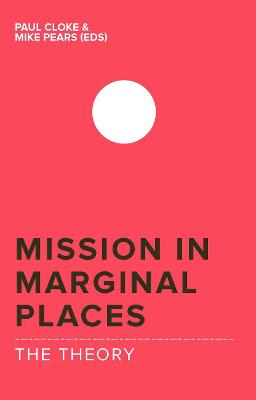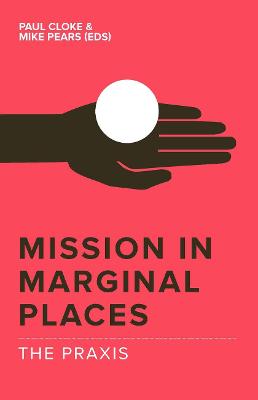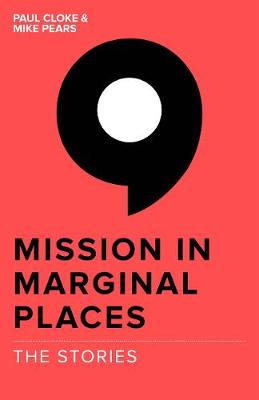Mission In Marginal Places
3 primary works
Book 1
This first book in the series presents a thought-provoking foundation for
contemporary mission. Drawing on key theological, missiological and social
scientific ideas it discusses the fundamentals that provide a basis for place dependent,
reflective praxis amongst people occupying social margins. This
fascinating work re-energises debate around questions of why and how
mission in marginal places should be planned and implemented.
contemporary mission. Drawing on key theological, missiological and social
scientific ideas it discusses the fundamentals that provide a basis for place dependent,
reflective praxis amongst people occupying social margins. This
fascinating work re-energises debate around questions of why and how
mission in marginal places should be planned and implemented.
Book 2
The second book in the series focuses on participation and practice, and
discusses a range of ways in which Kingdom-centred mission can be
embedded in the actually existing realms of activity and need in marginal
places. The book explores five different realms of practice, each presenting
opportunities for innovative expressions of incarnational attentiveness to
marginalized communities and people. It seeks to inspire prayerful and
discerning activity that tunes into what Jesus is doing in local places,
rather than providing any kind of "off-the-shelf" checklist of prefigured
mission tactics. It challenges readers to take their faith-praxis beyond
orthodox congregational settings and out into the everyday realms of life
in marginal places.
discusses a range of ways in which Kingdom-centred mission can be
embedded in the actually existing realms of activity and need in marginal
places. The book explores five different realms of practice, each presenting
opportunities for innovative expressions of incarnational attentiveness to
marginalized communities and people. It seeks to inspire prayerful and
discerning activity that tunes into what Jesus is doing in local places,
rather than providing any kind of "off-the-shelf" checklist of prefigured
mission tactics. It challenges readers to take their faith-praxis beyond
orthodox congregational settings and out into the everyday realms of life
in marginal places.
Book 3
The third book in The Mission and Marginal Series looks at the lessons we can learn from the testimonies of people living and working on the margins of society.
If you look hard enough you will find groups of Christians deeply embedded in the life of every city - serving faithfully, innovating in extraordinarily creative ways and living sacrificially. This book is the third in a six-volume series specifically exploring the theologies and practices that are arising as groups seek to follow Jesus in these challenging situations.
At the heart of the series are the core convictions that such involvement must prioritise the marginalised and socially excluded; that theology must be liveable and practical; and that mission studies benefit from engagement with insights from contemporary social science.
If you look hard enough you will find groups of Christians deeply embedded in the life of every city - serving faithfully, innovating in extraordinarily creative ways and living sacrificially. This book is the third in a six-volume series specifically exploring the theologies and practices that are arising as groups seek to follow Jesus in these challenging situations.
At the heart of the series are the core convictions that such involvement must prioritise the marginalised and socially excluded; that theology must be liveable and practical; and that mission studies benefit from engagement with insights from contemporary social science.


